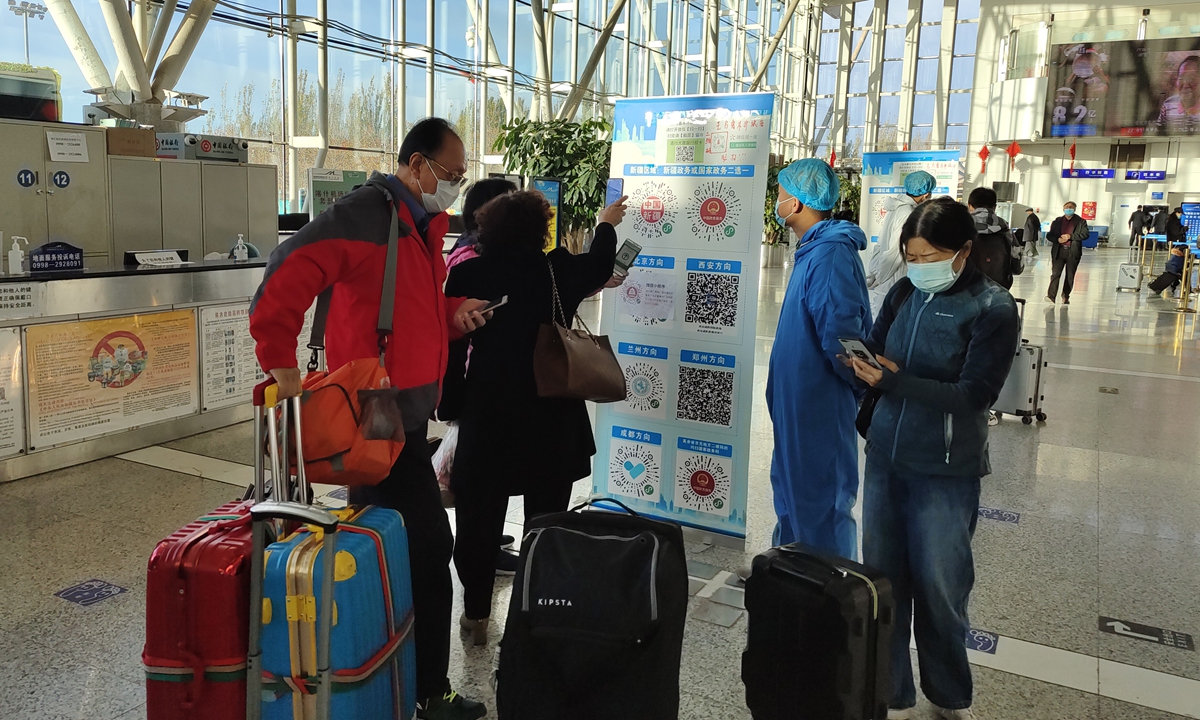Kashi begins 3rd round of mass nucleic acid tests 'to track infections'
By Cao Siqi and Liu Caiyu Source: Global Times Published: 2020/11/2 22:08:48

Travelers scan their health codes at an airport in Kashi, Xinjiang Uygur Autonomous Region on Friday. Flights has resumed to normal as the latest COVID-19 outbreak ebbs. Photo: VCG
Kashi in Northwest China's Xinjiang Uygur Autonomous Region began its third round of mass nucleic acid testing on Monday, after Xinjiang reported 61 new silent virus carriers on Saturday alone. This comes after it finished the second round of testing in key villages, which sparked public concern over whether the initial clustered outbreak linked to a local clothing factory had spread in the region.
Kashi reported 13 more silent virus carriers between midnight and 6 pm on Monday, taking the total number of confirmed cases in Xinjiang to 57, all from Shufu county in Kashi; and silent virus carriers to 236, all from Shufu county and nearby Akto county in the Kizilsu Kirgiz Autonomous Prefecture, Wang Xijiang, an official from the Kashi health authority, said at a press conference on Monday night.
Kizilsu Kirgiz finished a second round of mass nucleic acid testing as of noon on Monday and discovered 15 silent virus carriers, all from places near Shufu county, Wang Liangsen, an official with the prefecture's health authority, said at the same press conference, noting that test results of the other residents in the prefecture were all negative.
It was the first time that officials from the Kizilsu Kirgiz attended press conference together with those from the Kashi. Facing increasing infections, officials from the two prefectures said that they had started a third round of mass nucleic acid testing on Sunday.
Wang Guangfa, a respiratory expert at Peking University First Hospital, told the Global Times on Monday that repeated nucleic acid testing will help detect undiscovered COVID-19 infections in communities and the source of infections, and assure the public that the outbreak has been contained.
However, he also called for a more thorough epidemiological investigation and the need for greater speed.
Posted in: SOCIETY